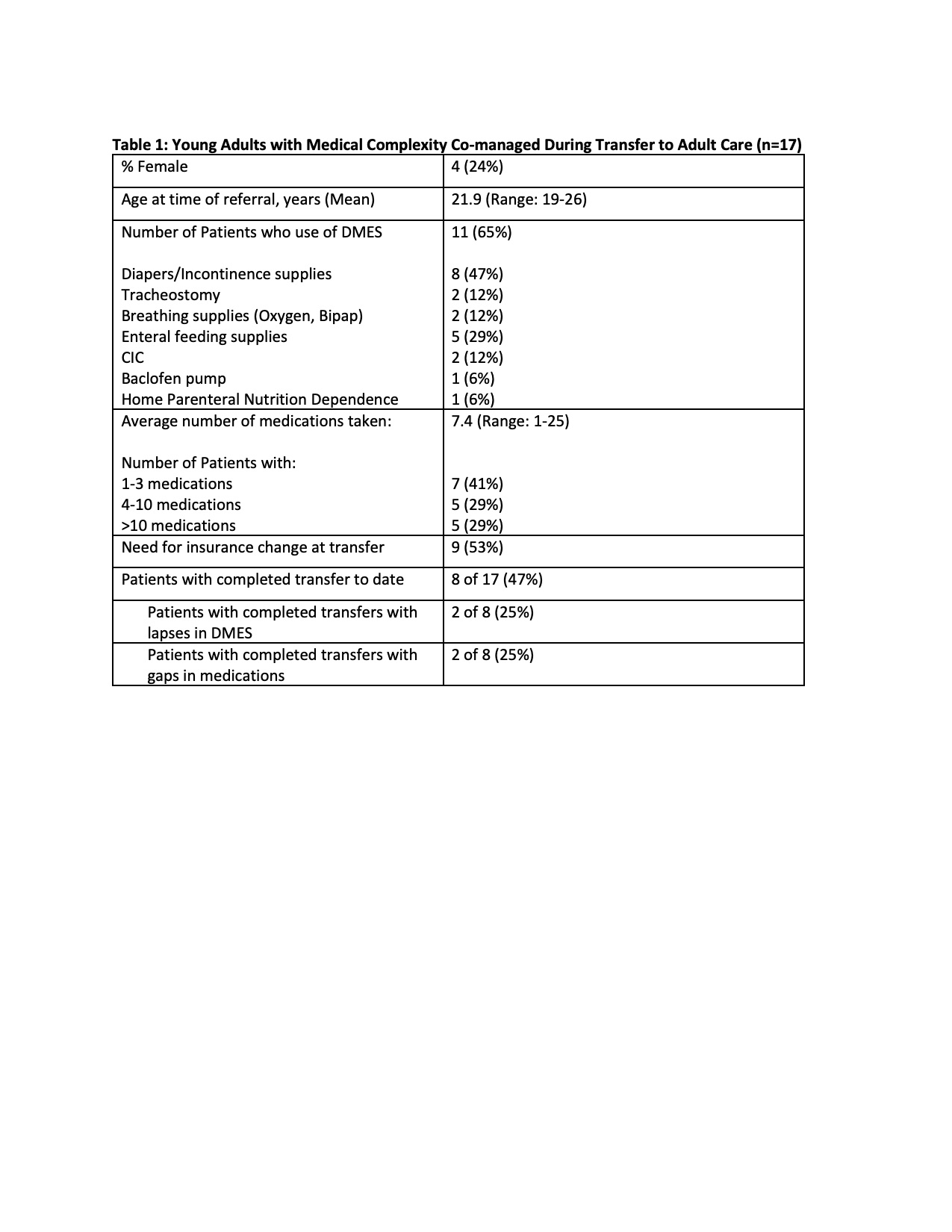Children with Chronic Conditions
Children with Chronic Conditions 3
91 - Use of a Co-management Approach to Ensure Safe Transfer of Care for Medically Complex Young Adults across Two Distinct Health Systems
Publication Number: 91.305

Arda Hotz, MD MPH (she/her/hers)
Pediatrician
Boston Children's Hospital
Harvard Medical School
Boston, Massachusetts, United States
Presenting Author(s)
Background:
Young adults with medical complexity often require several specialists and are dependent on durable medical equipment and medications to manage their daily care. The transfer to adult care for these patients is known to be a vulnerable time due to the need to change multiple providers. Patients who receive care at a stand-alone children’s hospital face the additional challenge of transferring to a new hospital system all together, a transition that often necessitates an insurance change, which potentially causes additional risk of lapses in access to care, medications, and durable medical equipment and supplies (DMES).
Objective: To design a process that would support a safer transfer to adult care through a co-management approach with an adult transfer team at the receiving hospital system to minimize lapses in medication and DMES.
Design/Methods:
One large urban pediatric practice serving 16,000 patients, of whom 1,190 (7%) are medically complex, partnered with a transfer team at an adult network of hospitals to create a transfer process. The design team included pediatric and adult providers, social workers, case management, and families of young adults with medical complexity. The resulting process includes identification and coordination with pediatric specialists, patient-facing informational packets, and a period of co-management by both pediatric and adult teams supported by transition coordinators at both sites. Measures included time to complete the transfer process as well as frequency of lapses in DMES and prescription medications.
Results:
Over 6 months, 17 young adults with medical complexity were referred for transfer support; these patients were co-managed by both pediatric and adult care transition teams until their first appointment with the adult PCP. Of these patients, 65% use DMES, 29% use over 10 medications, and 53% required an insurance change. Of the 8 patients who completed transfer to date, an average of 16.6 (range 11-20) weeks of pediatric/adult co-management were needed before the initial visit with the adult PCP (Table 1). Of the 8 completed transfers, 2 patients have had lapses in DMES, and 2 patients had issues obtaining prescription medications. All of the patients who had lapses in care experienced an insurance change.
Conclusion(s):
Transfer to adult care is challenging for all medically complex young adults, but the transition across distinct institutions makes it more vulnerable, particularly for patients requiring an insurance change to transfer. A coordinated approach including co-management from both teams may help reduce lapses in care.
